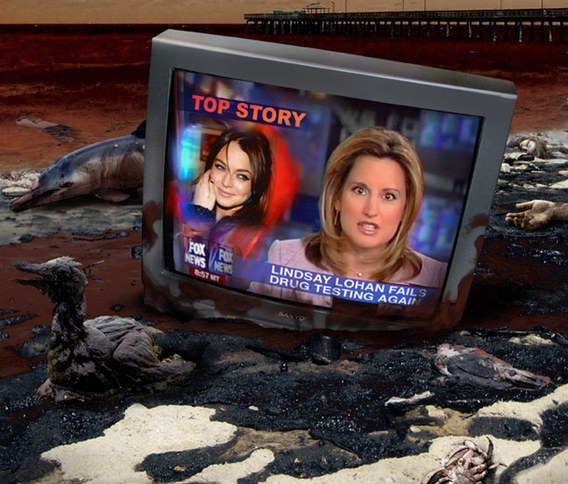The Last Oil Shock: A Survival Guide to the Imminent Extinction of Petroleum Man by David Strahan had been on my wishlist at Amazon for about two years when I found it at a library sale for 2 euros.
Rather than a review, below is a selection of quotes from its extensive sources.
Quotes from the Preface
"I don't like the thought that oil production will peak and decline any more than I like the thought that I am going to die. But both are facts."
- Jean Laherrere, former oil explorer for Total
"[We face a] major historical discontinuity, by which I mean civilization itself is under threat."
- Colin Campbell, formerly working with BP, Texaco and others
Quotes from chapter 1: Sources in Washington
This is the chapter you must desperately avoid reading if you cling onto one of the usual excuses for attacking Saddam's Iraq. Full of interesting details, below is just a few choice quotes in chronological order:
January 26, 1998 PNAC sends a letter to President Bill Clinton:
[...] if Saddam does acquire the capability to deliver weapons of mass destruction, as he is almost certain to do if we continue along the present course, the safety of American troops in the region, of our friends and allies like Israel and the moderate Arab states, and a significant portion of the world’s supply of oil will all be put at hazard.
Signed by, among others, Donald Rumsfeld.
Louis Christian, an independent oil repository cartographer, was hired to chart Iraq in year 1998. Via the US Geological Survey but for who and what exactly?
"It seems to me the most likely suspect would be somebody high up in the administration that had a virtually unlimited budget that they don't have to itemize. Most likely the CIA or Pentagon."
November 1999 Dick Cheney gave a speech at Institute of Petroleum:
"[Demand is growing but production is declining so] where is the oil going to come from? [...] the Middle East with two thirds of the world's oil and the lowest cost, is still where the prize ultimately lies, even though companies are anxious for greater access there, progress continues to be slow [because of] US-imposed economic sanctions."
When George W. Bush took office with Cheney, Rumsfeld and other neo-cons Louis Christian's map was discussed at one of the very first meetings held. The Cheney Energy Task Force "melded" or "conflated" the "capture of new and existing oil and gas fields" with "policies towards rogue states" - which was
revealed by Judicial Watch.
"We were acutely conscious of the fact that Saddam had carved up all the oil exploration deals and contracts with big non-US and non-UK multinationals."
- Carne Ross, former British in UN
That is the deals that would settle if sanctions were lifted and the run-down Iraqi oil sector hadn't damaged its oil fields before that.
The Iraq war happened. Colonel Gaddafi of Libya got the message, publicly 'renounced' weapons of mass destructions and took the unique step of offering 15 contracts for oil exploration to foreign companies, 11 of which were given to US firms.
Chapters 2 and 3 deals with peak oil itself. But mostly just experts admitting it's on its way. David Strahan isn't just one rogue journalist with a crazy idea; the other day - by coincidence - I saw this short video about peak oil:
Quotes from chapter 4: Long fuse, short fuse
Chapter four discusses which of the two oil issues - climate change and peak oil - is the biggest. It begins with an interesting anecdote: 16th of February 2005 Greenpeace decided to celebrate the Kyoto Treaty by setting off rape alarms attached to helium balloons inside the International Petroleum Exchange in London and raising a banner saying "Climate Change Kills. Stop Pushing Oil" outside. However, the traders reacted with fierce violence:
"They just went wild. They were trying so hard to hit us they fell over one another. "
- Greenpeace activist
"[Having a metal bookcase pulled down my head] wasn't great but it made a kind of barrier between us and them."
- Greenpeace director, Stephen Tindal
Stock exchange traders reacting to environmentalists with violence - just like
fishermen,
miners and
lumberjacks.
The chapter ends with a former Greenpeace chief scientist's agreement with one of the postulates of the book - that the last oil shock will be a crisis every bit as profound as climate change:
"They're both problems that threaten the future as we know it, so I wouldn't like to draw a distinction. They certainly have different length fuses, but they're both large weapons of mass destruction. [...] Yes, of course, absolutely [peak oil has the shortest fuse]. If we were sensible, logical, joined-up thinkers, which we're not [we'd concentrate on peak oil]."
- Jeremy Legget, geologist, author and more
The finer details
David Strahan then spends about 130 pages chronicling the many curious influences oil has on world society, the many small signs the oil hegemony is cracking up and the futility of attempts to do something about it.
Chapter 5, page 115 the US unemployment rate is linked to (correlated, explained) the oil price. And just consider what other things unemployment is linked to.
"There are good reasons why oil shocks hurt. When the oil sheikhs gets more of the world's money, someone has to end up with less. Profits drop, firms begin to go out of business, people lose their jobs."
- Professor Andrew Oswald, Warwick University
Chapter 7, which is about OPEC and how it is lying about the volume of its resources, page 170 and onwards the fragile position of the Saudi Arabian monarchy is discussed (emphasis in bold added by me):
It's not hard to see why Saudi Arabia might want to exaggerate the scale of its oil resources; the position of its royal family demands it. For decades the fundamental contradiction of Saudi Arabian society has been that a population that largely adheres to Wahabism, the most puritanical, fundamentalist and xenophobic sect of Islam, is ruled by a royal family that is venal, bloated and Westward-leaning. The absolute monarchy has only managed to survive because its control of the oil has allowed it to buy American protection, and to bribe its own people. [...] Saudi Arabia's revenue from oil exports, which account for three-quarters of its income, collapsed [by 80% from 1980 to 2004...] half the population is under twenty-one, and the unemployment is thought to be as high as 25 per cent. There are frequent acts of terrorism and attacks on the security forces [...] The house of Saud has every reason to be terrified that it will soon go the way of the Shah of Iran. In these circumstances the royal family needs American protection more than ever before.
Saudi Arabia's security pact with America was famously sealed when Roosevelt met Ibn Saud on his way back from the Yalta conference in 1945. Saudi oil production was negligible at the time, but US officials had already concluded that Saudi reserves constituted 'a stupendous source of strategic power, and one of the greatest material prizes in human history'. Although the meeting on board a US warship in the Suez Canal went unminuted, it is widely thought the two reached an understanding that has apparently survived to this day: America would guarantee the security of Saudi Arabia - and in effect the house of Saud - and in return the Saudis would guarantee US access to their vast reserves. In any event, successive US presidents have behaved as if that was the arrangement, providing the Saudis with billions of dollars in arms for both national defense and internal security. And Bush the Elder took America into the first Gulf War explicitly on that basis, declaring 'the sovereign independence of Saudi Arabia is of vital interest to the United States'.
There is no meaningful way to do an 'Ecowar excerpt' of chapter 8,
Interesting Times, because it's relevant in its entirety. Continuing where chapter 7 left off it begins with the story of a half-botched and mis-reported Al-Qaeda attack on a Saudi oil field then detailing the complex geopolitics surrounding Mid East oil, Chinese influence especially. However, here is one of the more disturbing quotes, one that reminds us why it's a good thing Obama is in the White House:
"From the Bush administration's point of view, there is only one obvious and immediate way to alter this unappetizing landscape [ie of Iran-China deals] - by inducing 'regime change' in Iran and replacing the existing leadership with one far friendlier to US strategic interests."
- Professor and author Michael Klare
Or how about this one, page 182:
The world has never seen a problem like [peak oil]. Without massive mitigation more than a decade before the fact, the problem will be pervasive and will not be temporary. Previous energy transitions (wood to coal, coal to oil) were gradual and evolutionary; oil peaking will be abrupt and revolutionary.
OK, what internet crackpot said that? The US Department of Energy did in its
Peaking of World Oil Production report. The chapter continues with many details of the economic battle already having raged for years. At times it's a bit eerie as some of its year 2006 predictions resemble what we are beginning to see in 2010, ie in the house prizing bubble that isn't exactly re-inflating.
Like the rest of the book chapter 9,
Memo to Mr Wicks, is themed around one of the major dichotomies, conflicts or scandals in the subject. In this case the discrepancy between some of the ridicule the author received while researching the book and some of the most grave expert warnings. Like the one from the US Army Corps of Engineers:
Oil production is approaching its peak; low growth in availability can be expected for the next 5 to 10 years. As worldwide petroleum production peaks, geopolitics and market economics will cause even more significant price increases and security risks.
Finally the two last chapters are comprised of recommendations for politicians and people respectively. I'll leave those with a recommendation of the book - but no, one of his recommendations isn't "suicide by oil".
Update on the Iraqi oil law - and "alien scientists"
Since my choice of quotes focussed on the Iraq "liberation" it's only fair to finish with a video clip about the Iraqi oil law.
I also came across this next one more typical of the "YouTube underground":

